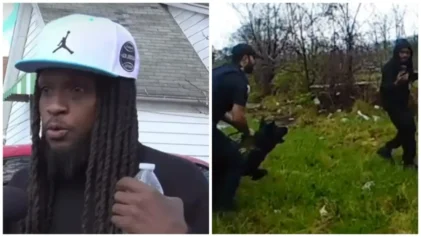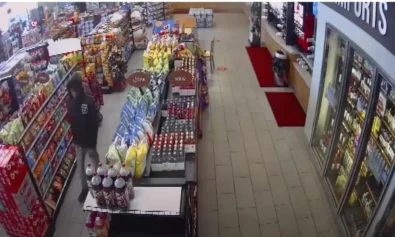Raymond “Ray” Warthen, 42, is the owner and creator of Infinite Zion Farms near downtown Orlando. He and his wife, Cherette, 38, started farming four years ago. Their mission is to make healthy eating accessible. Infinite Zion Farms is located in a food desert.
“The urban community didn’t have to travel to us, we’d be right on their block. That changed the dynamic of the neighborhood,” Warthen said in a recent interview with Atlanta Black Star.
The urban farmer grew up in and around the area and uses music to connect to the youth in the community. A fun way, he says, to draw them into healthy eating.
“Today is ‘TOT’ in the garden. Everybody knows it’s ‘Thugged out Thursday,’ where we play hip-hop. Tuesday is more like jazz days, but it goes down out here on Thursday. I don’t know what it is about the people in the neighborhood, but the energy goes up,” said Warthen.
The garden sits on a one-acre lot. Warthen grows collard greens, lettuce, papayas, bananas and so much more. He says each item is selected for boosting immune system health. Warthen both sells and donates food to community members.
“I lost my father at age 59 to prostate cancer. When I come out here it’s spiritual for me because every element that’s out here ties back to my father.”
His father loved bees and fruit trees. He keeps them in his garden as a reminder of the seeds of healthy eating his dad planted in him years ago. Warthen spends hours talking to people in the Parramore neighborhood, sharing knowledge about the value of growing your own food.
Warthen also has what he calls a miracle tree in his garden.
“The reason they call this the miracle tree — it’s the highest antioxidant tea you can make. It’s called the moringa. It’s been around since our ancestors. You can eat every part of it. When people feel sick I tell them they can come in and cut some leaves to make tea,” added Warthen.
Warthen has two farms, and they are located in predominantly Black neighborhoods in food deserts, which is generally defined to mean people in and around the area have limited access to fresh or affordable food. But Warthen hopes to change that one garden at a time.
“A lot of those organizations that hand out food hand out food that hurt the community — not help them. We are one of the first organizations to bring in that real produce that’s helping the community,” Warthen added.


